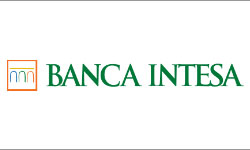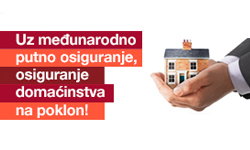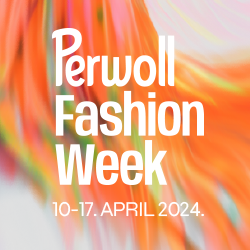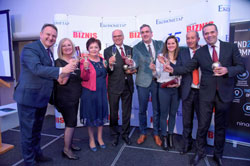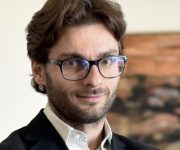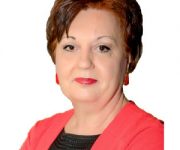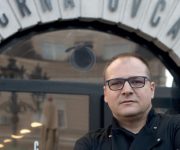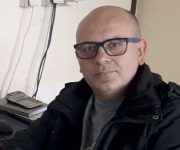In the companies whose value is estimated at dozens of billion dollars, they ask you neither who you are nor where you come from, they are only interested in whether you can do your job well and professionally
Branislav Knežević, president of „McDonalds” company for Central Europe is strongly reminded by the stalls on the market in Munich, where he is living at the moment to those from the Belgrade Kalenić market. This respected manager is 42 years old, and he has already lived in around ten world cities and in each of them found something to remind him of his native town. In Budapest it was the way of life, in Sofia the neighbours who often dropped by for a coffee and „a bit of conversation“ reminded him of his own neighbours, and in London night live is, as he says, almost as good as in the Serbian capital.
– I enjoyed in every city where I worked but there is a small ritual which I practise only in Belgrade and nowhere else in the world- namely, sitting and drinking coffees in bars. I like to spend several hours retelling idle tales. That is not to be found anywhere in the world- Knežević says.
In the last few years he can afford this pleasure less and less frequently. The geographical distance has taken its toll and has distanced him from Belgrade a little bit. In the 19 years of his faithful service to the “McDonalds” company he has never felt to belong less to his Belgrade as in the last five years, although, as he says, he comes to Serbia on weekends more frequently than ever.
There are no slow changes
The economic development of our country, in Branislav Knežević’s words, could have been faster.
– When I look at how Bulgaria, the Czech Republic, Poland, Hungary developed I think I am right. They opened up for investors sooner; foreign investments arrived in a far greater amount. Slovakia has performed a miracle in that respect. I have learnt a good lesson on transition from their minister of finance and I cite him very often. The most important thing for the changes is, he says, that an agreement between all the parties exists as to which direction you want to take. It is not enough for the ruling party to turn to Europe, but everyone must know where they are going. The second rule is that the government must be completely open to its citizens and to honestly say how much it will cost and how long it will last. The third and most important thing is that you must do that fast. There are no slow changes. A slow change is a contradiction in itself. There is no self questioning or reflection either. Self questioning always costs you time, and it is so with business as well.
– It is not so much to stay in tune with the political events, but rather to follow how the style and the way of life are changing. I have become distanced from the political life in Serbia. I know more public figures and good sportsmen than the politicians- Knežević admits. Regardless of everything, he is strongly attached to Belgrade because of his friends, parents, but also his fiancé. As he says, they have been together for ten years already, they very frequently see each other travelling the Munich-Belgrade route and that resembles marriage a little bit now, although Knežević jokes that it would not be convenient for his girlfriend “to find out from the newspapers that she is married”.
Of himself he says that he is the customer in his own firm. As many as three times a week he finds himself in one of „McDonalds” restaurants. Then he usually orders a “big Mac” and that makes him no different from the average customers of his company, because precisely this sandwich is “Mac’s” best sold product. When he goes on a trip, he “crams” a “big Mac” into his bag besides the computer and the mobile phone as well.
– In the last few years I make even business appointments in the “Mac”. I first came across this idea in Hungary. It turned out to be a very good idea and since then I have constantly practiced it. – Knežević reveals.
Regardless of the new tendencies in the way of eating and propagating healthy food, he explains that in his company there is a ready-made answer to all questions on the harmfulness of the so-called fast food.
– Since the beginning of this century “Mac” has modernized as well. We have reduced the percent of salt in some products by ten percent, of fat by 14 percent; we have reduced the number of calories. We are following the new tendencies in eating. Naturally, it was a risky move because of which we could have lost some customers, but we did nothing off the top of the head and abruptly, without a detailed research into the taste of our customers. The recipe is not to be changed over night- Knežević explains and adds that daily more than 43 million people visit the “McDonalds” restaurants.
In Germany, for instance, the pork sandwich is popular, in Asia it is the chicken, in China the hot products, in Australia the beetroot sandwich. What is common for the Hungarians, Serbs and Germans is that they like hot foods more than the French or the Slovenians, Knežević says.
Although he has arrived at his position by hard work, Knežević does not hide that at first he viewed “McDonalds” as a seasonal engagement. While still a student, at the beginning of 1988., he started working that a restaurant on London. This respected company at that time had no intention on going into the Southeastern European market at all. However, in just a few months the idea of opening the first “Mac” in Belgrade was incepted. The Slavija Square was assigned as the location and Knežević was part of the first team of managers.
– The very fact that the first “Mac” in Moscow was opened in 1990., and in Prague and Warsaw only in 1993. is indicative enough of the fact that there were no concrete plans for entering this market. “Mac’s” restaurant on Slavija was the first in the socialist world of those times. In spring 1988. the business was going well and there were many more visitors than we had expected in the beginning. Even then I looked at that as a short term job – from May to June in order to save enough money to go to the seaside. However, an offer from London followed. They asked me if I would stay with “Mac” in the position of the first assistant manager in Birmingham. Afterwards I was the manager in Belgrade, then Bulgaria, Hungary and in the end I found myself in Munich. For the last two years I have been working on the position of president of the Central European division- Knežević says. In the entire 19 years he has not felt as if he were working for one firm. He is, as he says, worked for a brand, and was constantly changing the companies, the colleagues and the working surroundings.
– I think I have succeeded because wherever I was, I adjusted myself to the surroundings and to my employees. Regardless of being on the managerial position, I did not expect that someone should adjust himself/herself to me. Owing to that today I speak five languages, and understand no less than ten. I consider that it is the most valuable thing I have learnt working in the “McDonalds” company – Knežević estimates.
However, even today it means to him most when a worker out of the 140,000 workers for whom he is responsible gives him praise, because he does not forget the beginning in 1988. in London that the restaurant where it all began. For that reason the praise of ordinary workers matters to him even more than the managerial title.
Whether there is a recipe for success – we asked Branislav Knežević as he was approaching Munich; in the interview we made using the modern means of communication – a computer and a mobile phone.
– There is no other recipe but hard work, Knežević says. – Twenty years ago I did not even dream that I would go this far. I thought that someone from Serbia cannot be at the head of a big world firm. However, in the companies whose value is estimated at dozens of billion dollars, they ask you neither who you are nor where you come from, they are only interested in whether you can do your job well and professionally – Branislav Knežević says.
Anica Nikolić




